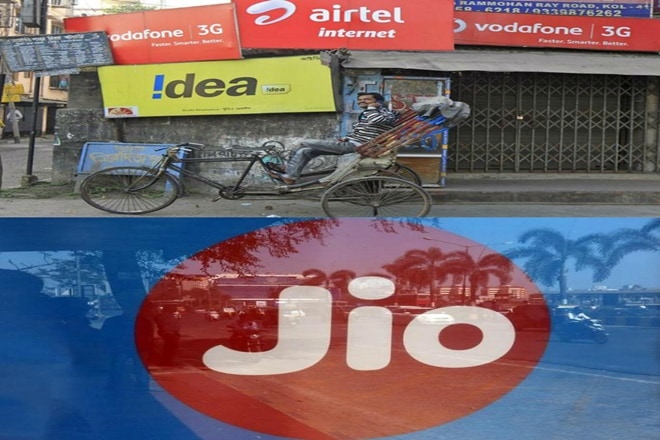Bharti Airtel will not make any upfront payment to acquire Telenor India, but instead will take over its outstanding liabilities towards pending spectrum payments and other operational contracts including tower and infrastructure leases, as part of the deal to buy the Norwegian telecom operator’s India business, TV news channels reported citing Telenor without identifying the spokesperson.
Earlier today, Bharti Airtel – India’s largest telecom services operator for now – said that it will acquire rival Telenor India to further augment its customer base and network, amid the ongoing consolidation in the Indian telecom sector after the entry of Reliance Jio with its free voice and data services.
Liability adjustment
Telenor India has total outstanding liabilities of about Rs 3,500 crore, with about Rs 1,650 crore due towards spectrum payouts to the government and other operational contracts. Telenor also has about Rs 1,800 crore in outstanding bank debt, which it will service itself to facilitate a ‘clean deal’.
On its part, Telenor Group has said that the sale of its India business will not trigger any impairment, since as of the fourth quarter of the year 2016, the remaining value of tangible and intangible assets in Telenor India amounted to 300 million Norwegian Krone (about Rs 2,400 crore).
As part of the acquisition, Telenor India’s management will be absorbed into Bharti Airtel, CNBC TV18 reported.
Becoming stronger
The acquisition will add Telenor’s about 44 million subscribers to Bharti Airtel’s existing 266 million mobile users in India, taking the total to about 310 million. Telenor India operates in seven (circles) service areas with high population concentration, namely Andhra Pradesh, Bihar, Maharashtra, Gujarat, UP (East), UP (West) and Assam. Telenor India buyout will also give Bharti Airtel another 43.4 MHz spectrum in the 1800 MHz band.
You may also like to watch:
Mega Telecom Deal! @airtelindia to acquire @TelenorIndia. ET NOW gets you the details: pic.twitter.com/Sif200L2J5
— ET NOW (@ETNOWlive) February 23, 2017
Notably, almost all the other telecom service companies in India are making moves towards consolidation, as the incumbents look for scale and operational efficiencies to take on the onslaught of competition from the giant new entrant Reliance Jio.
Sector consolidation
Vodafone India – the second-largest telecom operator – is in talks for an all-share merger with Idea Cellular – the third largest – in order to gain the required scale to take on the heightened competition. An announcement to this effect is expected later this week.
On the other hand, Tata Teleservices is reportedly in talks with Reliance Communications to merge its operations with the Anil Ambani group-controlled entity to join the proposed R-Comm-Aircel-MTS combine. As is known, Reliance Communications is all set to finalise deals to merge Aircel Ltd into its own wireless telephony business. It is also in the process of finalising a merger of Systema Shyam Teleservices, the owner of MTS services, with itself.
New pecking order
If all these mergers go through as reported, the Vodafone-Idea combine will overtake Bharti Airtel as the largest telecom operator in India with a total user base of over 395 million as of now. Vodafone has 205 million subscribers and Idea has over 190 million.
Bharti Airtel, even with the acquisition of Telenor, will be in the second spot with a combined 310 million mobile subscribers in India. Tata-Tele-R-Comm-Aircel-MTS would have about 260 million put together, putting the group in the third position.
Reliance Jio, which is at the crux of the reshuffling of the entire telecom deck, has got 100 million users in just 170 days of launching the operations – not a mean feat to achieve in less than six months.
Why
Reliance Jio’s entry into the telecom space has forced the incumbent players to drastically cut tariffs – as much as by 66% – in order to retain their customer base, and has put the entire sector under tremendous pressure of choosing between protecting margins and user base.
You may also like to watch:
Reliance Jio had also extended its inaugural free voice and data plan till March 31 drawing complaints and criticisms from its biggest rivals Airtel, Vodafone and Idea, who assert that its anti-competitive practices and freebies are hurting the industry.
The developments have forced the smaller players with weaker balance sheets to consider amalgamating with other larger ones in view their business operations fast becoming unviable.
Reliance Industries, India’s largest business conglomerate, launched its much awaited telecommunication venture Reliance Jio Infocomm last year with a whopping Rs 1.5 trillion investments to start with, mainly in building high-speed internet infrastructure over the new 4G/LTE network across the entire country. It topped it up with an announcement of a further investment of Rs 30,000 crore in December.


